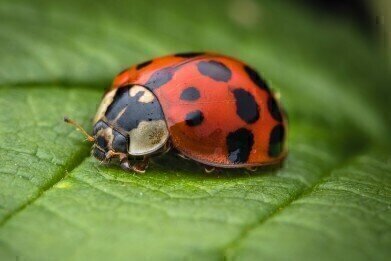-
 ladybird
ladybird
News
Meet the UK’s Fastest Invading Species! Harlequin Ladybirds.
Jun 23 2015
With reports of more animal species threatened with extinction every month, you would think that any thriving species would be welcomed in the UK. Not so.
Take the harlequin ladybirds. These insects have just been declared the UK’s fastest invading species, since their arrival in 2004. But their success has come at a cost to Britain’s native ladybirds.
The harlequins have now reached almost every corner of the UK. Their rapid rate of invasion is due to their cannibalistic nature - the harlequins devour the UK’s native ladybirds, which are now in decline.
The general public have been assisting scientists in the last decade, by providing sightings of the harlequins, up and down the country. Dr Helen Roy, of the Centre for Ecology and Hydrology, spoke about how the UK Ladybird Survey had revealed the speed of how quickly the harlequin has invaded Britain. “The harlequin is the fastest-spreading alien species on record that I can think of,” she said, adding that it is now establishing a strong presence in the UK.
Where is the harlequin ladybird most prevalent in the UK?
Thanks to the survey, scientists know that the harlequin is not as prevalent in Scotland as it is in England and Wales. It is believed that this is due to the colder weather north of the border.
At present, experts surmise that the harlequin is directly responsible for the demise and decline of at least seven of the UK’s native ladybirds. This includes the popular two-spot. Numbers of the two-spot were last calculated in 2012, where figures revealed they had dropped by 44%. To date, these numbers have never recovered.
On the up
There is a little good news to the harlequin invasion however. This invading species prey on a range of insect pests that can cause significant damage to crops and plants. The full extent of this benefit is not presently known.
Also, there is evidence to suggest the UK’s native species have started a fight back, by adapting to the harlequins. This is thought to be helping to keep the rising numbers in check.
Dr Roy has stated that thanks to the ladybird survey, scientists now have a better understanding of how alien species travel across the country. Thousands of sightings of the harlequins were recorded as part of the monitoring programme, and was a huge help to scientists: “Such surveillance is critical to strategies for early-warning and rapid response,” said Dr Roy.
One theory, thanks to the monitoring programme, is that the harlequins are transported by cars. Using this insight, it may be possible to halt this invasion and stop future alien species from thriving.
What alien species are considered damaging to the UK?
Scientists agree that most alien species that arrive do not harm the native environment. Nevertheless, some can cause irrevocable damage. One such dangerous alien species is the bee-eating Asian hornet. This species has already been spotted in France and Dr Roy is keen to use lessons learnt from the harlequin ladybird, if it reaches the UK. “It’s about having a plan in place and what to do when it arrives,” she said.
Dr Roy and co-author Peter Brown, of Anglia Ruskin University, published their findings of the harlequin ladybird invasion in the journal Ecological Entomology.
Little Things that Run the World
Television chat show presenter Jonathan Ross played host to mini beasts of all sorts when he launched National Insect Week 2014, at the Natural History Museum in June. Highlighting the theme of this year’s events –‘Little Things That Run The World’- Jonathan said: “You might not think insects can be fun but they are! They’re also hugely important and National Insect Week is a great way of improving everyone’s knowledge about them and the role they play in habitats not just in the UK but across the world. I never knew there was so much to learn about insects!” If you’d like to read more about National Insect Week, check out this article, Little Things that Run the World.
Digital Edition
Lab Asia Dec 2025
December 2025
Chromatography Articles- Cutting-edge sample preparation tools help laboratories to stay ahead of the curveMass Spectrometry & Spectroscopy Articles- Unlocking the complexity of metabolomics: Pushi...
View all digital editions
Events
Jan 21 2026 Tokyo, Japan
Jan 28 2026 Tokyo, Japan
Jan 29 2026 New Delhi, India
Feb 07 2026 Boston, MA, USA
Asia Pharma Expo/Asia Lab Expo
Feb 12 2026 Dhaka, Bangladesh


















